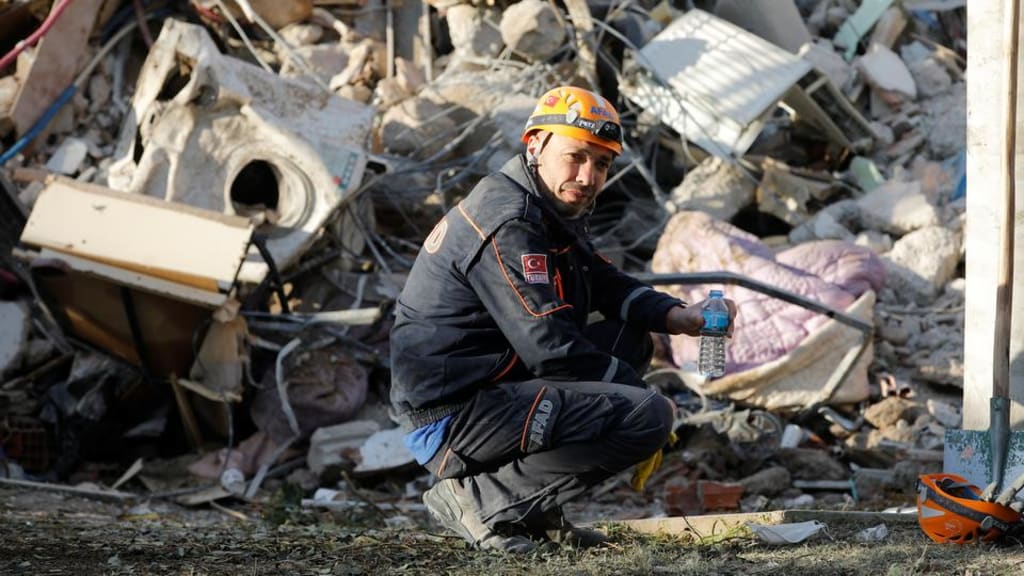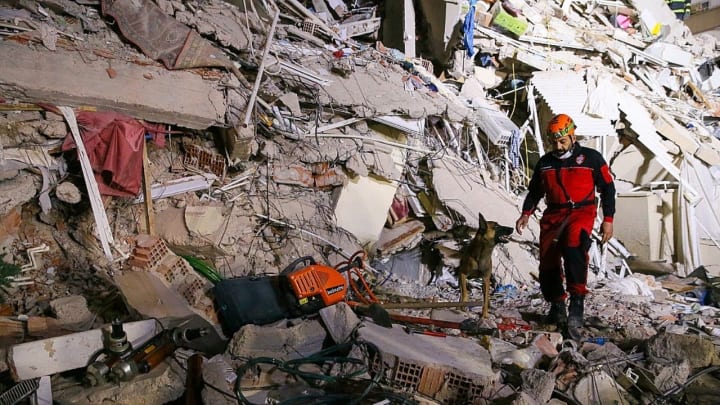"Search and Rescue": Saving Lives in Times of Crisis
The Brave Men and Women Who Risk It All to Save Lives: A Look at Search and Rescue Teams

Search and rescue, also known as SAR, is a critical function that is performed in times of emergency and crisis. It involves a coordinated effort to locate and rescue individuals who are lost, injured, or in danger, typically in remote or inhospitable environments. SAR teams are composed of trained professionals, including first responders, military personnel, and volunteer organizations, who work together to locate and rescue those in need.
The main goal of SAR operations is to find and rescue individuals as quickly and safely as possible. This can involve searching for missing persons, providing medical attention to injured individuals, or evacuating people from areas that are deemed hazardous. SAR teams use a variety of tools and techniques to achieve their objectives, including search dogs, helicopters, and sophisticated communication and navigation equipment.
SAR operations can take place in a variety of environments, including wilderness areas, mountains, deserts, and at sea. The type of equipment and techniques used in a SAR operation will depend on the specific environment and the nature of the emergency. In some cases, SAR teams may need to engage in dangerous activities, such as rappelling down cliffs or entering unstable structures, to reach those in need.
SAR operations can be initiated for a variety of reasons, including natural disasters, lost or injured hikers, and boating or aviation accidents. SAR teams are often the first responder in these types of incidents, providing critical care and transportation to individuals who are in need. In addition, SAR teams may also be called upon to assist in large-scale disasters, such as earthquakes or hurricanes, to search for survivors and provide critical care.
Overall, SAR operations are a crucial component of emergency response, providing critical care and support to individuals in need. SAR teams are made up of dedicated professionals who are trained and equipped to handle a wide range of emergencies, and they play a critical role in saving lives and providing assistance in times of crisis.
In conclusion, search and rescue is an essential function that plays a vital role in times of emergency and crisis. With its trained professionals, sophisticated equipment, and commitment to saving lives, SAR operations provide a critical lifeline to those in need, ensuring that they receive the care and support they need to survive and recover.

What are the search and rescue teams trained on?
Search and rescue (SAR) teams are trained on a wide range of skills and techniques to prepare them for a variety of emergencies and scenarios. Some of the key areas of training for SAR teams include:
- Search Techniques: SAR teams are trained on a variety of search techniques, including grid searches, hasty searches, and targeted searches, to help them locate individuals who are lost, injured, or in danger.
- Navigation and Orientation: SAR teams are trained on navigation and orientation techniques, including map and compass use, GPS navigation, and aerial navigation, to help them locate individuals in remote or unfamiliar environments.
- Emergency Medical Care: SAR teams are trained on basic emergency medical care techniques, including first aid, CPR, and advanced life support, to provide critical care to individuals who are injured or in need.
- Rescue Techniques: SAR teams are trained on a variety of rescue techniques, including rope rescue, air rescue, and boat rescue, to evacuate individuals from hazardous environments.
- Communications and Coordination: SAR teams are trained on communication and coordination techniques, including the use of radios, cell phones, and other communication equipment, to ensure effective communication and coordination between team members and with other agencies.
- Hazard Awareness: SAR teams are trained on hazard awareness, including the identification and avoidance of hazardous environments, to ensure their safety during operations.
- Physical Fitness: SAR teams must maintain a high level of physical fitness, as their work often involves demanding physical activity, such as hiking, rappelling, and carrying heavy equipment.
Overall, SAR teams are trained on a wide range of skills and techniques to prepare them for a variety of emergencies and scenarios. The goal of their training is to ensure that they are equipped to locate and rescue individuals who are in need, providing critical care and support in times of crisis.
And we cannot thank enough people in this sacred profession for the work they did in the great earthquake that Turkey went through.
About the Creator
Tolga Bozdağ
I am an amateur writer and I share articles about topics that interest me. I hope you enjoy reading it.
Enjoyed the story? Support the Creator.
Subscribe for free to receive all their stories in your feed. You could also pledge your support or give them a one-off tip, letting them know you appreciate their work.





Comments
There are no comments for this story
Be the first to respond and start the conversation.